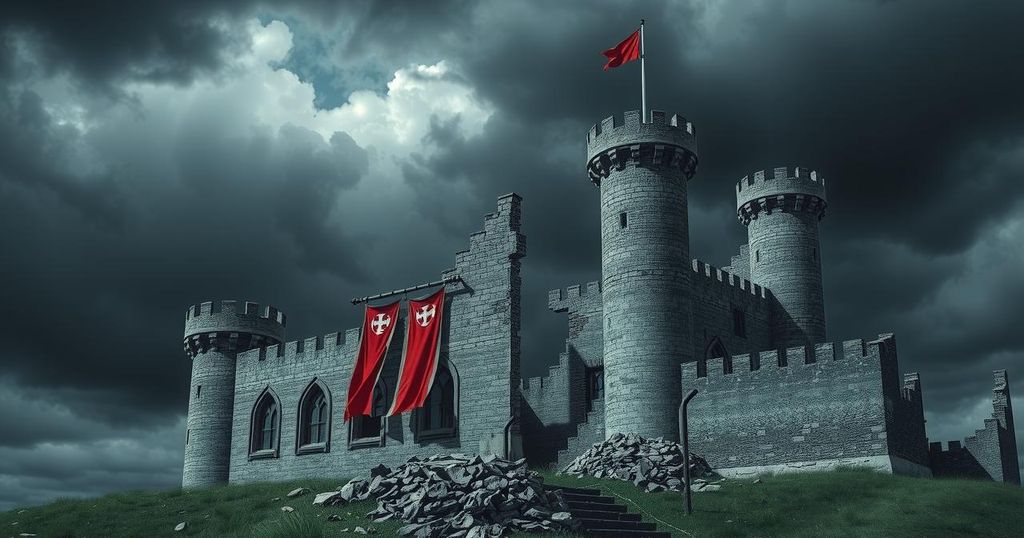Putin’s World Shrinks as Allies Walk Away Amid Ukraine Crisis
- The war in Ukraine is depleting Russia’s global alliances.
- Syria, once an ally, has started to drift away amid conflict.
- Armenia has formally distanced itself from Moscow’s security pact.
- Finland and Sweden have recently joined NATO as a response to Russian actions.
- Central Asia is seeing new partnerships replace traditional Russian dominance.
- Iran feels abandoned as Russia remains silent in its crises.
The Deteriorating Diplomatic Landscape for Russia
War tends to reshape alliances, and the conflict in Ukraine has certainly taken its toll on Russia’s friendships and partnerships on the global stage. The situation has grown steadily more dire for the Kremlin as the war drags into its third year, proving not just to be a conflict that bleeds soldiers but also one that drains away the trust that Russia once enjoyed with former allies. Vladimir Putin’s diplomatic connections appear to be crumbling at an alarming rate, a stark reminder of America’s own experiences in Afghanistan, but markedly more isolating. Once standing proudly alongside Moscow, these nations have begun their slow exit, leaving a deafening silence in their wake.
Syria’s Alliance Cracks Under Strain
Take Syria, for instance, which was once heralded as a triumph for Putin—a showcase of military might that secured Bashar al-Assad’s rule through Russian intervention back in 2015. However, as the focus turned to the ongoing conflict in Ukraine, Russia’s attentions faded, compromising its ability to support Assad when the rebels re-emerged. The result was catastrophic: Assad’s regime waned, and what started as a friendship now feels as if it is teetering on the brink of collapse. The manner in which Russia navigates its obligations to Syria these days feels markedly different as it grapples with its own geopolitical strains.
Armenia Breaks Away from Moscow’s Protection
Then there is Armenia, a nation that once saw Russia as its protective shield against foes like Azerbaijan and Turkey. In 2023, that protective veil disappeared with the fall of Nagorno-Karabakh while Russian peacekeepers remained stagnant, inciting profound anger in Yerevan. By 2024, Armenia’s withdrawal from the CSTO—the security pact that historically bound it to Moscow—showcases not just disappointment but a fundamental shift in trust. Russia finds itself increasingly isolated, as countries it once considered allies slip away, signaling a serious concern for its future role in the region.
Finland and Sweden Seek NATO’s Protection
Nordic nations, too, have sensed the urgency presented by Russia’s altered posture. Finland’s accession to NATO in 2023 and Sweden’s subsequent entry in 2024 flip Sweden’s and Finland’s historic stance of neutrality on its head. What began as a string of perceived Russian aggressions turned these nations from complacency to proactive defense strategies. The expansion of NATO now brushes against Russia’s borders, a clear illustration of an unforeseen consequence that contradicts Putin’s efforts to stave off NATO’s influence in Europe.
Central Asia’s New Alliances Emerge
Meanwhile, in Central Asia, traditional Russian influence is dwindling. Countries like Kazakhstan, Uzbekistan, and Kyrgyzstan, which once echoed with remnants of Soviet ties, now find themselves the subjects of new partnerships as Europe, China, and Turkey extend their presence. With Brussels investing in infrastructure, Turkey offering its military support, and China embedding itself through its Belt and Road Initiative, Moscow struggles to maintain its grip amidst these shifting tides. The quiet yet significant transformation in Central Asia emphasizes just how far Russia has strayed from its historical dominance in these regions.
Iran’s Disappointment with Moscow’s Silence
The loneliness felt in Iran does not go unnoticed either. While Tehran supplied Russia with advanced drones, it seems that such loyalty led to a one-way relationship. When Israeli forces launched airstrikes against Iranian positions, all that Moscow could offer was a few diplomatic regurgitated lines, failing to provide any substantial support. This has drawn focus to Russia’s indifference and failure to act amid crises, leaving Iran feeling abandoned while the Kremlin simply watches from a distance, unable to reciprocate the allegiance that had once been demonstrated.
Russia Faces Isolation Amidst Allies Departing
From regions like Syria and Armenia to the Nordic states and Iran, the pattern of withdrawal and discontent is clear. Russia’s role as a once formidable regional power now lays fractured and isolated. The allies that once championed Russia’s cause are abandoning ship, resulting in a shrinking sphere of influence for the Kremlin; this ongoing war in Ukraine has not only impacted military personnel, but it has also eroded the long-standing partnerships that were thought to be unshakeable. This is not merely a conflict in the traditional sense; rather it embodies an evolving landscape of diplomatic estrangement and a growing distance between Russia and its former friends, a scenario that many once believed would not unfold.
In closing, the war in Ukraine has initiated a serious downturn in Russia’s relations with countries it once considered allies. The fracture of longstanding partnerships—in Syria, Armenia, NATO accession by Finland and Sweden, and Iran’s disillusionment—is compelling evidence of a dramatic shift in global alliances. This landscape highlights a quiet yet palpable loss of connections, emphasizing that as the conflict continues, the fallout is not only on the battlefield but also felt in the chambers of diplomacy and beyond.




Post Comment